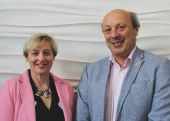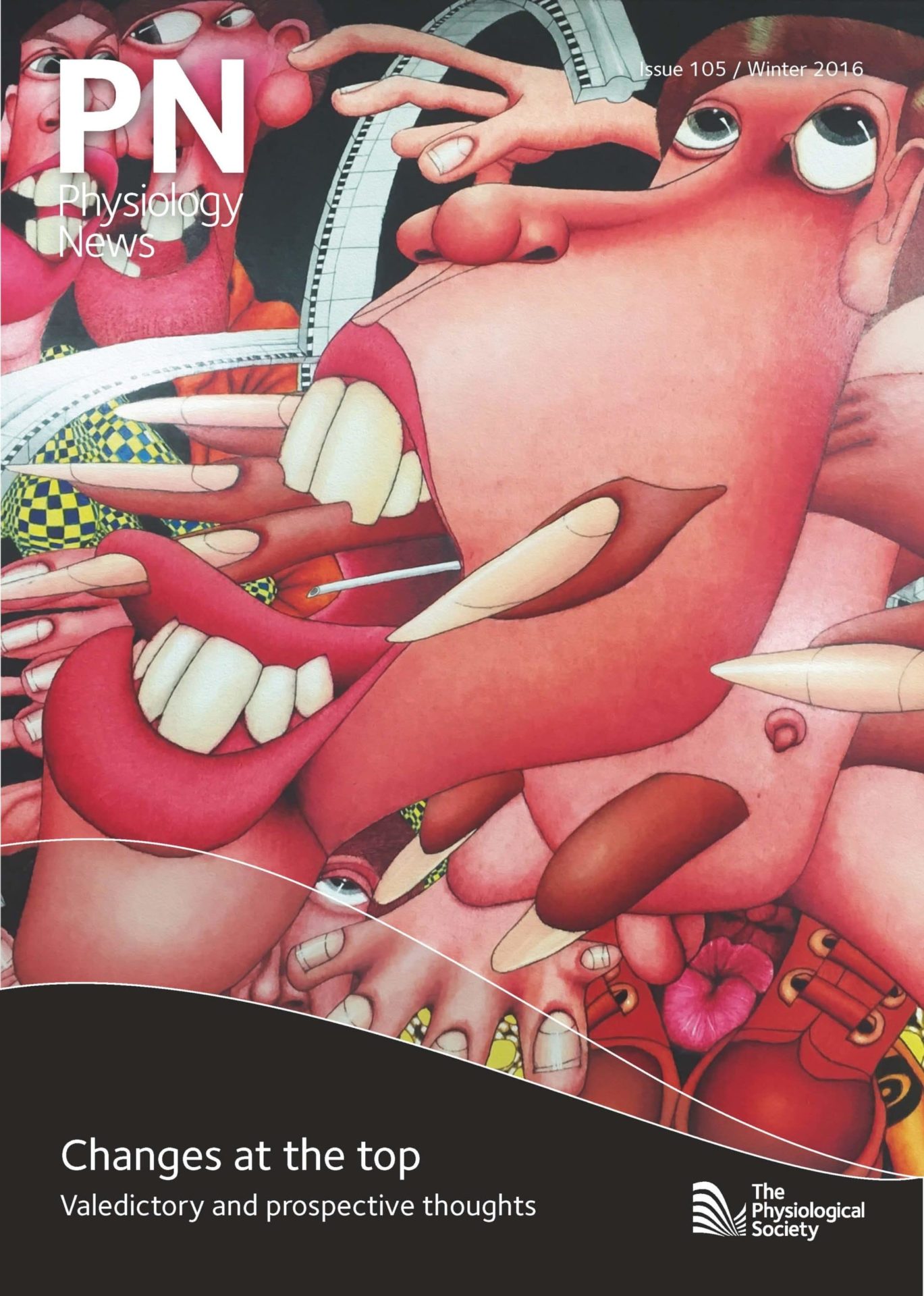
Physiology News Magazine
New President and CEO
News and Views
New President and CEO
News and Views
David Eisner
President, The Physiological Society
https://doi.org/10.36866/pn.105.9

It is a real pleasure to begin my term as President of The Physiological Society. Not only was it the first Society that I ever joined (in 1980) but it was where I gave my first scientific talk. This was no minor undertaking. As well as the usual fear of speaking in public, there was the added trepidation of the then custom of the Members voting on whether or not the abstract should be published (it was). Since those early days, I have enjoyed serving as both Chair of the Editorial Board of The Journal of Physiology and International Secretary.
We owe my predecessor, Richard Vaughan-Jones, a great debt for the way he has led it in the last two years. He has set a very high standard which will not be easy to match. What would I like to achieve in my own term? I see no need for revolution. Rather, I would like to consolidate all the excellent activities which the Society is carrying out. One exciting development is the creation of the Europhysiology series of meetings. This is a partnership between The Society and the two other large European Physiological Societies: the Scandinavian and the German Societies, in partnership with FEPS (the Federation of European Physiological Societies). Starting in 2018 with a meeting in London, there will be a meeting every two years, in 2020 in Germany and in 2022 in Scandinavia. These meetings will replace the usual annual meetings of the partner societies.
While I am sure that members will be well aware of our meetings and journals, many may not realise how much else we do. We have an active Policy Committee. This Committee engages with politicians and others to try to influence them on behalf, not only of our subject but of science in general. This area is a particularly busy one in the post Brexit era. Another important and related Committee is Education and Outreach which is charged with spreading the influence of physiology to students both in schools and universities. It appears to me that, although The Society does excellent work in these areas, we could do much more to involve our members and the public. My major goal is therefore to improve communications. In this context, it is frustrating that so few people seem to know what the word physiology means. It may be over-ambitious, but I would like to change this such that everyone from schoolchildren to politicians and captains of industry, not only recognises the word but has some idea of what the subject involves.
I am sure that all of our activities will benefit from closer links with other Societies. The science at our meetings has many overlaps and synergies with that of our sister societies in different areas of biology. More shared symposia and involvement in each other’s meetings can only be a good idea. While we quite properly have our own identity, many of the threats we face are also similar to those of our sisters and, again, joint work seems to be the way forward. A few months ago, The Society became an enhanced member of the Royal Society of Biology, an organisation which can speak to government as a single, unified voice for the biological community. Other links are also valuable. Further afield, we should work hard to persuade non-scientists of the importance, not only of physiology, but of science in general. This will require making common purpose with our colleagues in Physics and Chemistry as was done a generation ago by Joe Lamb and Denis Noble when they established Save British Science.
I am delighted to welcome our new Chief Executive Officer (CEO), Dariel Burdass who will take up her post this month. Dariel has a degree in Microbiology and, after spending time teaching, moved to the Microbiology Society. She began as Education Manager before becoming Head of Communications. In these roles she has developed the Society’s communications strategy in both traditional and digital media. Most recently, Dariel has served as Deputy CEO as well as Director of Strategy and Communications.
As well as the activities I mentioned above which are visible to all, much occurs behind the scenes. Our building (Hodgkin Huxley House) is a valuable financial resource and, as well as occupying it ourselves, we let it to tenants. As a charity and a business with an annual turnover of >£3M, we are subject to an ever increasing raft of regulations. The 30 or so staff employed by The Society carry out all this work in partnership with the Trustees and other members. The role of the CEO is of course to lead and coordinate these activities while helping the Trustees develop strategy. I am sure that Dariel will relish the challenge!
This is an appropriate moment to thank our interim CEO, Casey Early for the outstanding service he has provided since November 2015. Casey, Director of Finance, has been with The Society since 2003 as Director of Finance. Last year he was persuaded to put his beloved spreadsheets to one side and, while continuing his financial responsibilities, assume the mantle of CEO. In this position he led The Society’s staff with great aplomb.
I have been particularly impressed by the way he has spearheaded our interactions with sister Societies. His workload has been enormous and we owe him a great debt.
As a charity and a business with an annual turnover of around £4m, we are subject to an ever increasing raft of regulations. Our 26 staff carry out all this work in partnership with the Trustees and other members.
